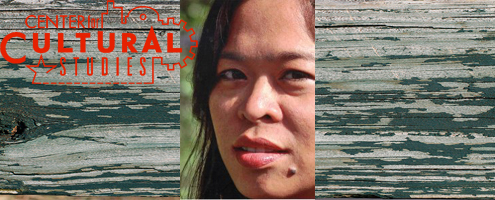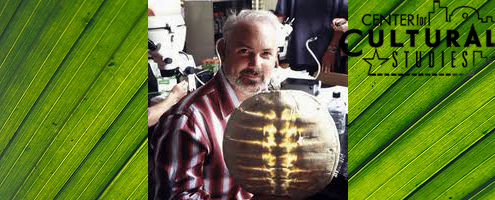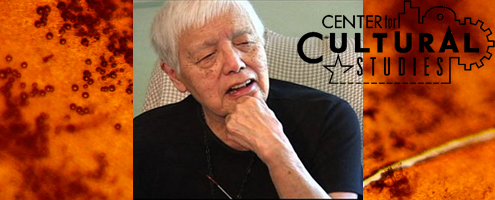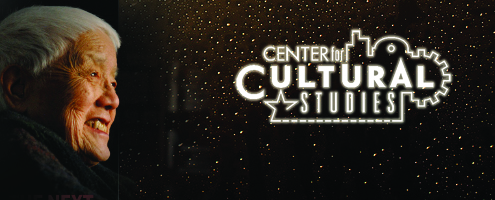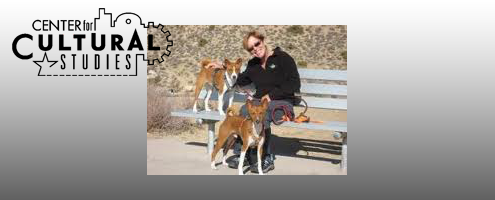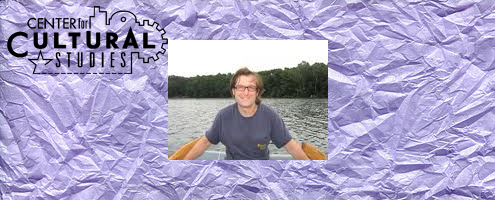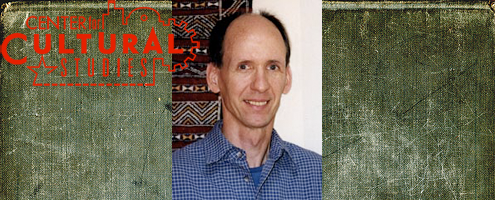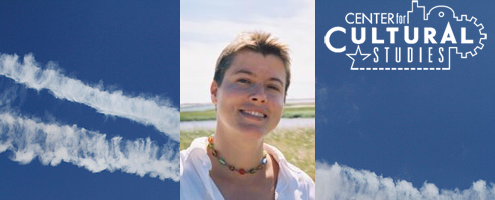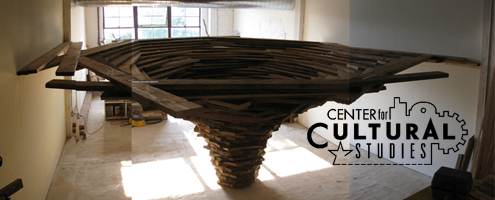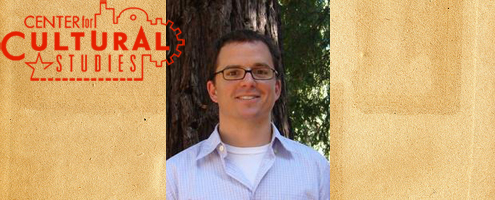Going beyond the assessment that Asian American men in the movies embody asexuality/effeminacy/queerness, or a manhood that falls short of the norms, Celine Shimizu’s Straitjacket Sexualities (Stanford, 2012) explores how Asian/American men in US film history sought to formulate masculinities in, through, and beyond constricting notions of their identities.
Uncategorized
November 15 Philosophy Colloquium- Scott Gilbert: “We are all lichens: How symbiosis research has reconstituted a new realm of individuality”
4:00pm, Humanities 1, Room 210
Co-sponsored by UCSC Philosophy, History of Consciousness, Center for Cultural Studies, and the Science and Justice Working Group.
ABSTRACT: The notion of the “biological individual” is crucial to studies of genetics, immunology, evolution, development, anatomy, and physiology. Each of these biological sub-disciplines has a specific conception of individuality, which has historically provided conceptual contexts for integrating newly acquired data. During the past decade, nucleic acid analysis, especially genomic sequencing and high-throughput RNA techniques, has challenged each of these disciplinary definitions by finding significant interactions of animals and plants with symbiotic microorganisms that disrupt the boundaries which heretofore had characterized the biological individual. Animals cannot be considered individuals by anatomical, or physiological criteria, because a diversity of symbionts are both present and functional in completing metabolic pathways and serving other physiological functions. Similarly, these new studies have shown that animal development is incomplete without symbionts. Symbionts also constitute a second mode of genetic inheritance, providing selectable genetic variation for natural selection. The immune system also develops, in part, in dialogue with symbionts, and thereby functions as a mechanism for integrating microbes into the animal-cell community. Recognizing the “holobiont”—the multicellular eukaryote plus its colonies of persistent symbionts– as a critically important unit of anatomy, development, physiology, immunology, and evolution, opens up new investigative avenues and conceptually challenges the ways in which the biological sub-disciplines have heretofore characterized living entities.
ABOUT: Scott F. Gilbert is the Howard A. Schneiderman Professor of Biology at Swarthmore College, where he teaches developmental genetics, embryology, and the history and critiques of biology. He received his B.A. in both biology and religion from Wesleyan University (1971), and he earned his PhD in biology from the pediatric genetics laboratory of Dr. Barbara Migeon at the Johns Hopkins University (1976). His M.A. in the history of science, also from The Johns Hopkins University, was done under the supervision of Dr. Donna Haraway. He pursued postdoctoral research at the University of Wisconsin in the laboratories of Dr. Masayasu Nomura and Dr. Robert Auerbach. Dr. Gilbert has been Chair of the Division of Developmental and Cell Biology of the Society for Integrative and Comparative Biology, and he is a member of the education committee of the Society for Developmental Biology.
He has also been elected a fellow of the AAAS and the St. Petersburg Society of Naturalists. He currently has three books in print:Developmental Biology (a textbook in its eighth edition), Bioethics and the New Embryology (a volume, co-authored with two students, that discusses new findings in developmental biology with respect to philosophy and religion), and Ecological Developmental Biology, a textbook co-authored with David Epel which integrates developmental plasticity, epigenetics, and symbiosis into discussions of medicine and evolution. Scott has received several awards, including the Medal of François I from the Collège de France, the Dwight J. Ingle Memorial Writing Award, the Choice Outstanding Academic Book Award, honorary doctorates from the University of Helsinki and the University of Tartu, and a John Simon Guggenheim Foundation Grant. In 2002, the Society for Developmental Biology awarded him its first Viktor Hamburger Prize for Excellence in Education, and in 2004, he was awarded the Kowalevsky Prize in Evolutionary Developmental Biology. He has recently become a Finland Distinguished Professor at the University of Helsinki and has received a grant from the National Science Foundation to work on that most interesting of topics-how the turtle forms its shell-and he continues to do research and write in both developmental biology and in the history and philosophy of biology.
Outside the class and laboratory, his interests include hiking, photography, and he plays piano in KNISH, one of Swarthmore’s premier Klezmer bands
Nov 8 Sustaining Activism and Political Hope: Webinar with Grace Lee Boggs
2:00-4:00pm | Social Sciences 1, Room 261
Anyone who wishes to attend the webinar online instead of in person, please contact Nancy Chen <nchenucsc@gmail.com> as soon as possible to reserve a spot. We will be using Google + hangouts as the webinar platform so be prepared to have a Google account. The platform is limited to 10 parties so please rsvp by November 7 for instructions.
—-
A legendary activist for social justice, Grace Lee Boggs—now 97 years old—has participated in social and political movements against war and on behalf of labor, civil rights, environmental justice, Black Power, Asian Americans, and women. In her writing and through her organizing, Boggs has helped to transform the lived experience of work, community and politics. Someone who perceives a vacant lot to be a space of possibility rather than an occasion for despair, Boggs has been a leader in the nationally recognized movement to construct a new kind of economy “from the ground up” in Detroit and to effect a paradigm shift there in the concept of education.
Participants in the webinar are encouraged to read Grace Lee Boggs’s book, The Next American Revolution: Sustainable Activism for the Twenty-First Century (UC Press, 2011), which includes autobiographical and theoretical chapters, chapters about the economic and educational movements in Detroit, and a conversation between Grace Lee Boggs and Immanuel Wallerstein. Chapter Two of the book—“Revolution as a New Beginning”—is available here or here. Copies of the book are available at the Literary Guillotine.
Sustaining Activism and Political Hope: Encounters with Grace Lee Boggs
Friday, October 26/ PRE-WEBINAR DISCUSSION of Grace Lee Boggs, The Next American Revolution: Sustainable Activism for the Twenty-First Century/3-4:30 PM/ Women’s Center
Thursday, November 8/ WEBINAR with Grace Lee Boggs, Room TBA
A legendary activist for social justice, Grace Lee Boggs—now 97 years old—has participated in social and political movements against war and on behalf of labor, civil rights, environmental justice, Black Power, Asian Americans, and women. In her writing and through her organizing, Boggs has helped to transform the lived experience of work, community and politics. Someone who perceives a vacant lot to be a space of possibility rather than an occasion for despair, Boggs has been a leader in the nationally recognized movement to construct a new kind of economy “from the ground up” in Detroit and to effect a paradigm shift there in the concept of education.
In order to prepare for the webinar with Grace Lee Boggs on November 8th at 2 PM, there will be a discussion of her book, The Next American Revolution: Sustainable Activism for the Twenty-First Century (UC Press, 2011.” Chapter Two of the book—“Revolution as a New Beginning”—is available here or here. Copies of the book are available at the Literary Guillotine.
Participants in the two events are urged to read the book, which includes autobiographical and theoretical chapters in addition to chapters about the economic and educational movements in Detroit, and a conversation between Grace Lee Boggs and Immanuel Wallerstein.
Oct 10 Carla Freccero: “Wolf, or Homo homini lupus”
Carla Freccero has taught at UCSC since 1991.This paper, a chapter of the in-progress Animate Figures, explores the long genealogy of human wolf eradication and figuration in the west, from economic competitor in Plautus’s “homo homini lupus,” to sovereign double in Derrida’s The Beast and the Sovereign.
Carla Freccero is Professor and Chair of Literature and History of Consciousness and Professor of Feminist Studies at UCSC.
Oct 17 James Martel: “A Revolution No One Believed In: The Haitian Subversion of the Ideals of the French Revolution”
Through a study of the Haitian Revolution, James Martel’s recent work not only questions the liberal universalism of the French Revolution, but also the myriad ways in which Haitians appropriated, subverted and radicalized Enlightenment principles.
James Martel is Professor and Chair of Political Science at San Francisco State.
Oct 24 James Clifford: “’Always Coming Home:’ On Postcolonial (Im)possibility in California”
James Clifford taught in UCSC’s History of Consciousness Department for 33 years and was founding director of the Center for Cultural Studies. Clifford is currently completing Returns, a book about indigenous cultural politics that will be the third in a trilogy. The first volume, The Predicament of Culture (1988) juxtaposed essays on 20th-century ethnography, literature, and art. The second, Routes (1997) explored the dialectics of dwelling and traveling in post-modernity.
Oct 31 Jenny Reardon: “The Post-Genomic Condition: Ethics, Justice, Knowledge After the Genome”
Jenny Reardon is currently working on a manuscript entitled The Post-Genomic Condition: Ethics, Justice, Knowledge After the Genome. This book traces the efforts to transform genomics from a field that in the 1990s sparked fears of racism and dehumanization to one that today claims the banners of democracy and justice.
Nov 7 Laurie Palmer: “How Long I Ask You to Watch”
Laurie Palmer’s current work explores matter’s agency as it asserts itself at different speeds and scales. In the contexts of sculptural practice and public participatory projects, she asks how we might access differing temporalities to re-imagine our entanglements in the material / social world.
Nov 14 Greg O’Malley: “To El Dorado via Slave Trade: British Commercial Imperialism in Spanish America & the Logic of Human Commodification, 1660-1713”
Gregory E. O’Malley is currently finishing his first book, Final Passages: The Intercolonial Slave Trade of British America, 1619-1807. It examines a complex network for distributing enslaved Africans throughout North America and the Caribbean after their survival of the infamous (and much more thoroughly studied) Middle Passage across the Atlantic.

